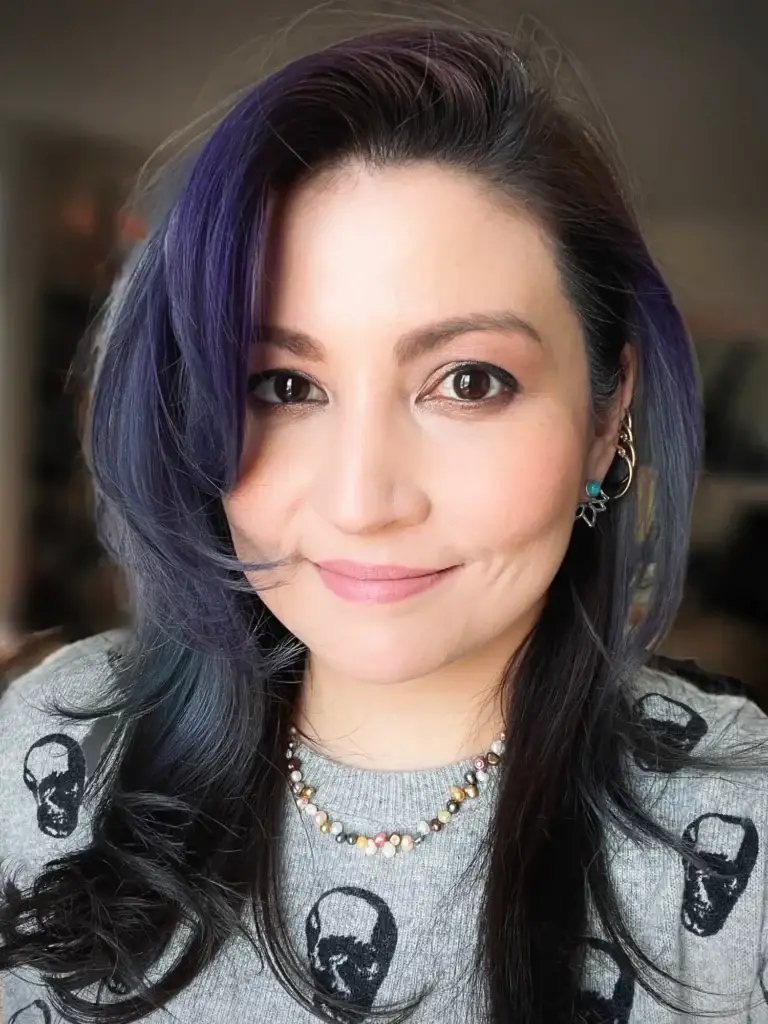Prioritizing LGBTQ+ Mental Health

LGBTQ+ mental health providers must consider how social environment, prejudice, and violence impact individuals of the LGBTQ+ community. Being a part of the LGBTQ+ community can be a source of strength, but it also presents unique challenges. Lesbian, gay, bisexual, transgender, and queer (LGBTQ+) individuals are at least twice as likely to experience mental health issues as the overall population. It begs the question of why the LGBTQ+ population has higher issues with mental health.
Unique Challenges in LGBTQ+ Mental Health
Life experiences have profound impacts on mental health, and understanding this impact can ensure that providers are considering the unique needs of individuals in the LGBTQ+ community when providing mental health care.
LGBTQ+ people are more likely to encounter prejudice and violence in social settings and in their medical/mental health care. The importance of affirmative care must be emphasized by healthcare professionals.
Limited Affirmative Care
An obstacle in LGBTQ+ mental health care is finding affirmative treatment. Care that is sensitive to cultural differences and supportive of the patient’s gender identity or sexual orientation is referred to as affirmative care.
Unfortunately, the approach to sexual orientation and gender identity in mental health care frequently lumps everyone in the LGBTQ+ community together. Since each sub-community has distinct issues, rates of mental illness, and experiences, this approach may be problematic.
The LGBTQ+ community is made up of a diverse group of people, each of whom have unique mental health needs. Race and socioeconomic position are two other identification variables that may have an impact on the standard of treatment or accessibility to care. Due to the possibility of discrimination or incompetence of providers, these experiences might cause a fear of disclosing one’s sexual orientation and/or gender identity.
Minority Stress & LGBTQ+ Mental Health
Regardless of sexual orientation, gender identity, color, or ethnicity, stress that isn’t properly handled can result in health issues and harmful behaviors. But those who identify as LGBTQ+ are more likely to develop mental health issues due to minority stress and the experiences of marginalized communities.
LGBTQ+ Mental Health Stats
LGBTQ+ people are at almost double the risk of developing a mental health challenge than heterosexual people. The mental health of the transgender community tends to have greatest rates of depression, anxiety, and suicidal ideation.
LGBTQ+ Mental Health Stats on Depression
Another prevalent mental health issue in the United States is depression, which affects 1 in 20 Americans on a regular basis. Depression is, however, much more prevalent in the LGBTQ+ population .
LGBTQ+ Mental Health Stats on: Substance Abuse
According to 2020 statistics from the Substance Abuse and Mental Health Services Administration (SAMHSA), 15% of the general population has a Substance use disorder . Even more people in the LGBTQ+ community suffer with s Substance use disorder. 34% of LGBTQ+ adults have drug use problems, according to SAMHSA. Additionally, study is underway, but it’s thought that 20–30% of those who identify as transgender may also have a Substance use disorder
LGBTQ+ Mental Health Stats on: Suicide
The CDC reports that suicide was one of the top nine main causes of death for persons aged 10-64 in 2020 and the second highest cause of death for those aged 10–14 or 25–34.
It is far more probable for someone who identifies as LGBTQ+ to think about, plan, or actually attempt suicide. Youth who identify as LGBTQ+ are around four times as likely than their straight counterparts to attempt suicide.
How To Find The Right LGBTQ+ Mental Health Professional
There are important considerations when seeking LGBTQ+ affirming care.
These steps may help you find the right professional for you
Step 1: Decide What You want to gain From Therapy and from your therapist
Do you want the provider to share specific parts of their identity with you, i.e., a provider of the LGBTQ+ community
Finding an affirming provider may simply mean that the provider is competency in LGBTQ+ issues. If you’re not looking for treatment specific to sexual orientation, identity, etc, you may not need to find someone who specializes in LGBTQ+ needs and may find that an affirming provider is sufficient
Step 2: Gather Referrals from trusted LGBTQ+ Mental Health Providers
- Call your insurance and ask for a provider list
- Use filters on directory websites to narrow your search
- Use LGBTQ websites, organizations and community groups as a source of referrals, information and guides.
- Participate or connect with:
- Local LGBTQI community centers
- Local LGBTQI health centers
- LGBTQI community groups such as equality groups, health collectives, social organizations, support groups
Step 3: Make the Call
Many people find that first call difficult, but remember, the therapist on the other end of that phone understands the courage it takes to make that call! If you need help, you can always send an email, sometimes even a text message, to providers to make that initial contact. Don’t forget to ask family, friends or trusted loved ones to help you out.
Step 4: Ask the Questions
It is hard to ask those difficult questions, and can maybe feel like an interview when you make the first call. But your mental health is important, and providers expect and welcome questions from their clients. It gives you and the provider an opportunity to understand what is important for treatment. Be forthright about your questions and needs and in the fact that you are looking for an LGBTQ+ competent provider.
- Some helpful questions may be:
- My identity is ______. What experience do you have working with people with that identity?
- What experience do you have with the LGBTQI community?
- Do you have any specific training or certifications that relate to working with LGBTQI clients?
You are not alone. LGBTQ+ Mental Health providers are here for you.

FAQ’s about Online therapy in New Jersey
How do I get started as a new client?
New Clients can reach out to us directly via call, text or email here:
What is your cancellation policy?
We ask that clients provide at least 24 hours notice in the event that they need to cancel to avoid the 50% cancellation fee. we understand that life happens and do our best to be flexible & reschedule.
Does my insurance cover my visits?
We provide”Courtesy Billing” for clients who are using the Out-of-network insurance benefits.
Our Insurance Page shares a small blurb about Why We Left Insurance Panels
Do you offer traditional talk therapy?
of course! though we have some unconventional therapy approaches, we are rooted in evidenced based practices. Talk therapy is a major player in the therapy room! See What we Treat and Integrative Services for more information
Is Online Therapy As Effective As In-Person Therapy?
Online therapy is essentially face-to-face counseling, just conducted remotely. Studies show that teletherapy is as effective as traditional counseling. Professional organizations and state governments recognize its benefits and have set regulations for it. However, like any therapy, its success in achieving your goals isn’t guaranteed. It’s important to discuss with your therapist whether teletherapy is working for you.
Can I Change Therapists If I'm Not Happy?
Yes, you can switch therapists to another provider within the practice, or we can provide you a referral if preferred. We want to ensure that your time and effort are well spent, and that you are getting the relief you need, that’s why we work collaboratively with each other in the practice, as well as outside therapists who we know and trust.
How Do I Know If Therapy Is Helping?
You should feel like you’re making progress. Signs it’s working include:
Feeling comfortable talking to your therapist
Your therapist respects boundaries
You’re moving towards your goals
You feel listened to
You’re doing better in life
Your self-esteem is getting better
Is Online Therapy Easy to Use for Non-Tech-Savvy People?
Yes, it’s pretty simple to access sessions. You’ll need basic internet skills, such as opening and visiting the patient link sent to you via email. It’s similar to video chatting like Facetime or Zoom. We can also walk you through it on the phone the first time to ensure a strong connection
What Questions Should I Ask My New Therapist?
Feel free to ask anything. Some good questions are:
- How often will we meet?
- What do you specialize in?
- What experience do you have with my issue?
- What outcomes can I expect?
- How will I know I’m progressing?
- How long do you usually work with clients?
- How will we set my treatment goals?
How Should I Prepare for My First Session?
Showing up is all that you need to do! But if you really want to get the most out of session, it could help to take some time to think about what you want from therapy. It helps to write down your goals, questions you have or things that you feel are important to share.
What is the difference between associate therapists & fully licensed therapists?
Our Qualifications:
Our founder, Rebecca Sidoti, is a highly qualified, state-licensed therapist and supervisor with extensive training in anxiety related disorders and innovative treatment such as Ketamine Therapy. Mind by Design Counseling adheres to standards set by the our governing counseling boards.
To see each providers credentials, training and licenses, visit our “Meet the Therapists” Page to learn more.
- LAC/LSW are therapists who may practice clinical work under the supervision of a fully licensed therapist.
- LPC/LCSW are therapists who have completed the necessary clinical hours post-graduation under supervision and can practice clinical work independently.
What Geographic Areas Are Served?
Currently, we serve clients in New Jersey and are expanding to other states as telehealth laws evolve. While telehealth offers the convenience of attending sessions from anywhere, state laws require clients to be in-state during their session.
Is Virtual Counseling Suitable for Everyone?
Online therapy might not be as effective for individuals with chronic suicidal thoughts, severe trauma, significant mental health history, or those recently in intensive care. Such cases often benefit more from traditional, in-person counseling. We’ll help you decide if our online services are right for you during your intake and evaluation.
What Equipment is Needed for Online Therapy?
To join a session, log in using the credentials we provide. No downloads are needed. Our platform, compatible with both individual and group sessions, requires:
A computer or mobile device with a webcam and internet access.
We’ll help you test your setup before your first appointment to ensure a reliable connection. iOS users should use the Safari browser for mobile and tablet sessions.
What Questions Will Therapists Ask Me?
It depends on your goals. Expect questions about your thoughts, feelings, relationships, work, school, and health. They’ll ask to understand your therapy goals.
How Do You Keep Client Information Secure?
Security and Confidentiality of Sessions:
Your privacy is crucial to us. We use TherapyNotes, a HIPAA-compliant platform, ensuring secure and confidential teletherapy sessions. This platform’s security features include encrypted video connections, secure data transfers, and encrypted databases, ensuring your information is safe at all times.
What is VRT used for?
we use VRT to support Exposure Therapy, a long standing traditional therapy modality to treat phobias, anxiety and stress. we send a headset directly to your home so you can access VRT from anywhere.
VRT not only helps with exposure therapy for phobias, but is great for ADHD, mindfulness, PTSD and social anxiety.





